Star Trek: Picard: Firewall
Written by David Mack
Published by Pocket Books
“No plan ever survives contact with the enemy – and, as far as I can tell, you have no Plan B. What are you gonna do out there when everything starts to go wrong?”
“If executed correctly, my plan –”
“Forget about correctly. Forget about your plan. Listen to what I’m telling you: People are fallible. Combat is chaotic. We have strict rules of engagement, a duty to use nonlethal force – but our enemies don’t. One mistake up there could get us and the rest of the team killed. Did you account for that?”
He wasn’t sure how he expected Seven to react. He didn’t think she would shrink like a violet, or wither in the face of criticism, but he certainly didn’t expect what she did next. She lifted her chin and actually seemed to get taller. “I am aware of the dangers posed by the mission. I’ve weighed the certain costs of failure against the potential gains of success. Imperiling eight lives to save eight hundred thousand is an acceptable risk-reward ratio.”
“Gotta give you credit, kid. You’ve got a way with math.”
At the end of the Berman era of Trek, Jeri Ryan’s Seven was last seen returning to Earth aboard the Starship Voyager, involved in a romantic relationship with Chakotay, and anticipating the possibility of joining Starfleet alongside her mentor and mother-figure, Captain Kathryn Janeway. At the character’s next appearance, 20 years later in the first season of Star Trek: Picard, she is detached from Janeway and Chakotay, works for the mysterious Fenris Rangers, and is soon to develop a relationship with Raffaela “Raffi” Musiker. David Mack’s novel Star Trek: Picard: Firewall is designed to fill part of that two-decade gap in Seven’s story with an adventure set at a key turning point for everyone’s favorite ex-Borg.
Mack’s novel brings Seven out from under Janeway’s shadow and chronicles her struggle to figure out her own identity and chart her own path in a galaxy growing darker by the minute. Feeling left behind as her former Voyager shipmates have all gone on to their new lives, Seven is a drifter, moving from planet to planet, job to job, longing for connection but afraid of being hurt. With the resettlement crisis on Romulus pulling Starfleet’s resources from the Federation’s outer sectors, Seven experiences the growing lawlessness, poverty, and despair of colonies once dependent on Federation aid. Their hopelessness mirrors her own as she, too, has been rejected by a Starfleet terrified of her Borg past. When she’s approached by a shadowy Federation Security agent and recruited to infiltrate the vigilante terrorist organization the Fenris Rangers, Seven sees the opportunity to finally be accepted by Starfleet. But as she gets deeper into the Rangers, she finds that they are not what they have been painted to be—and perhaps neither is the Federation.
This book is a slam-bang action novel, exploring some of the fringes of the Star Trek universe. While embracing Starfleet’s utopian 24th-century setting, it also acknowledges that even in a utopia, the galaxy is an enormous place, and even good decisions made for the right reasons can have negative downstream consequences. I especially appreciated the detailed look at the Fenris Rangers, their mission, their ethos, and their organization, all of which Mack fleshes out admirably.
While we meet a number of characters from Star Trek: Picard’s three seasons as well as from Star Trek: Prodigy, Mack keeps his Easter eggs subtle and sparse. The focus here is on Seven and her struggle to both understand who she is and to be accepted. While the Seven of Nine character on Voyager, and eventually on Picard, has long been an icon for gay and transgender people, her bisexual identity and connection to trans identification have never been as clear as they are here. Mack describes it as an exploration of Seven as “a newly out queer woman,” and Seven’s exploration of her newfound identity is at turns touching, sad, and hopeful.
Mack doesn’t skimp on the action, which is gritty, bloody, and visceral. Firewall brings elements that feel like Blade Runner, Star Wars, and High Noon into its Star Trek setting. And Mack utilizes his “f-bomb” allotment in an emotionally climactic way. The plot and characters never lose sight of the hopefulness of Gene Roddenberry’s universe, but fans who like their Trek more sanitary may find this novel pushing their boundaries. But in the end, Seven, the Rangers, and Starfleet all have the opportunity to shine as heroes. Good prevails, and evil is defeated over tremendous odds and through cleverness, technology, friendship, and endurance.
Action, inclusivity, and deep character growth: David Mack’s Firewall digs deeply into Seven and gives her clear motivations as she transitions from one Trek series to the next.
Available now
David Mack’s Star Trek: Picard: Firewall from Pocket Books was released on February 27. You can pick it up now at Amazon in hardcover and Kindle e-book.
Firewall is also available as an audiobook on CD now and also Audible. You can listen to a sample of the audiobook, read by January LaVoy below:
Find more news and reviews of Star Trek merchandise.
DISCLAIMER: We may link to product affiliate links that support TrekMovie by earning a small commission when you purchase through them.

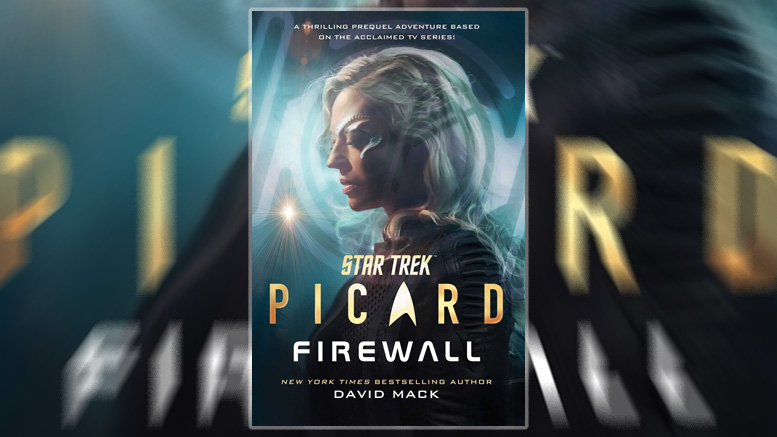
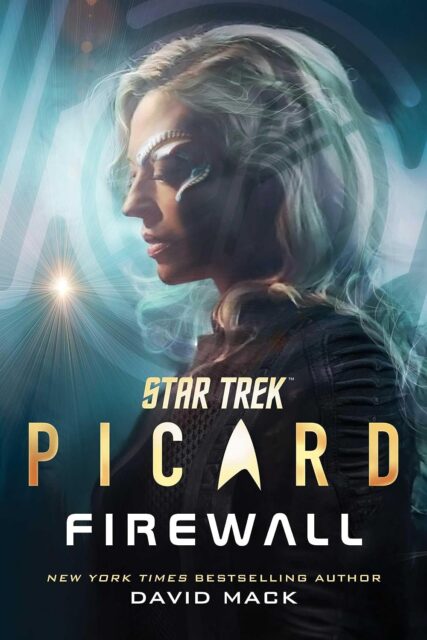
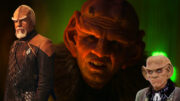
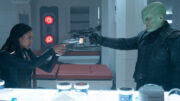
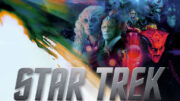

I haven’t done a Trek novel in years….this may get me back into it! Thanks
This does look good, but I’m saving my latinum for “Pliable Truths” by Dayton Ward, a prelude to DS9 featuring Picard (still reeling from his torture at the hands of Gul Madred), Ensign Ro, and Garak.
Why not both?
Because I’m usually very busy and only get to leisure read a few books a year. :P
Plus, at $20 a pop (I only read paper books), one has to be choosy about what goes into their library.
I love Trek novels. David Mack is a top-notch storyteller, and he knows how to voice these Trek characters. Can’t wait for this!
I finished reading this novel last week. It was great and I concur with the reviewers comments. Great story!
Dr. Dave
ASU planetary science professor
President, Phoenix Star Trek fan club
I enjoyed the book, but my question is about regeneration. This takes place only about 4 years after Voyager returned from the Delta Quadrant. There are no references to regeneration, but several to sleeping. Are we just supposed to assume Seven figured out how to do without it?
Picard also ignores this issue, but that is taking place nearly 20 years later, so seems more likely she’d have figured it out by that point.
Who is that on the cover? She doesn’t look anything like Jeri Ryan.
Mack’s written some of the best Star Trek period. I’m at least intrigued, but maybe not as much as the Cox and Ward novels coming out this year (I guess I don’t care for the Picard novels so far.)
This is an excellent book. You could almost see this as a streaming movie with not much extra effort. It’s surprisingly small in scope, picking out one corner of the ST Universe, and spending some time exploring places and people in the region without going into “The end of the Federation as we know it” territory. The characters, including Seven’s mentor, are well written and fleshed out very nicely.
This story takes place primarily in 2381, so it is concurrent with S2-4 of Lower Decks, and about 2-3 years before Prodigy. There are scenes on the USS Dauntless, and brief mentions of Tysess, Noum, and Asencia, but they are light and not relevant to the main story.
Overall, this book does an excellent job at tying together plots threads and characters from Voyager, Picard, Star Trek (2009), and Prodigy without having to visit Memory Alpha to keep up. I definitely recommend this one.